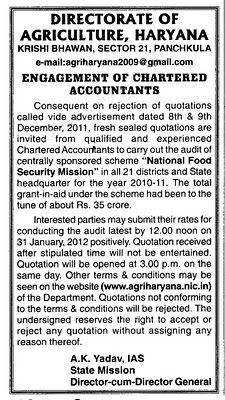[TO BE PUBLISHED IN THE GAZETTE OF INDIA, EXTRAORDINARY, PART II, SECTION 3, SUB-SECTION (i)]
GOVERNMENT OF INDIA
MINISTRY OF FINANCE
(DEPARTMENT OF REVENUE)
Notification No. 3/2012-Central Excise
New Delhi, the 16th January, 2012
G.S.R. (E).- In exercise of the powers conferred by sub-section (1) of section 5A of the Central Excise Act, 1944 (1 of 1944), the Central Government, on being satisfied that it is necessary in the public interest so to do, hereby makes the following further amendments in the notification of the Government of India in the Ministry of Finance (Department of Revenue), No. 23/2003-Central Excise, dated the 31st March, 2003, published in the Gazette of India, Extraordinary, vide number G.S.R. 266(E), dated the 31st March, 2003, namely :
In the said notification, in the Table, –
(i) against Sr. No. 8, for the entry in column (4), the entry “In excess of 5% ad valorem” shall be substituted;
(ii) against Sr. No. 10, for the entry in column (4), the entry “In excess of 6% ad valorem” shall be substituted;
(2) This notification shall come into force force on the 17th day of January, 2012.
[F No.-354/4/2012 -TRU]
[Raj Kumar Digvijay]
Under Secretary to the Government of India
Note.- The principal notification No. 23/2003-Central Excise, dated the 31st March, 2003, published in the Gazette of India, Extraordinary, vide number G.S.R. 266(E), dated the 31st March, 2003, was last amended vide notification No.No. 5/2010-Central Excise, dated the 27th February, 2010, published vide number G.S.R.107 (E), dated the 27th February, 2010,








